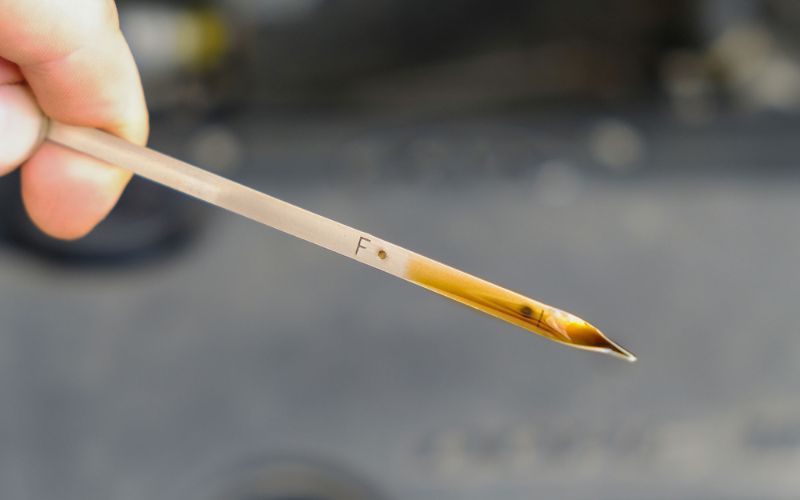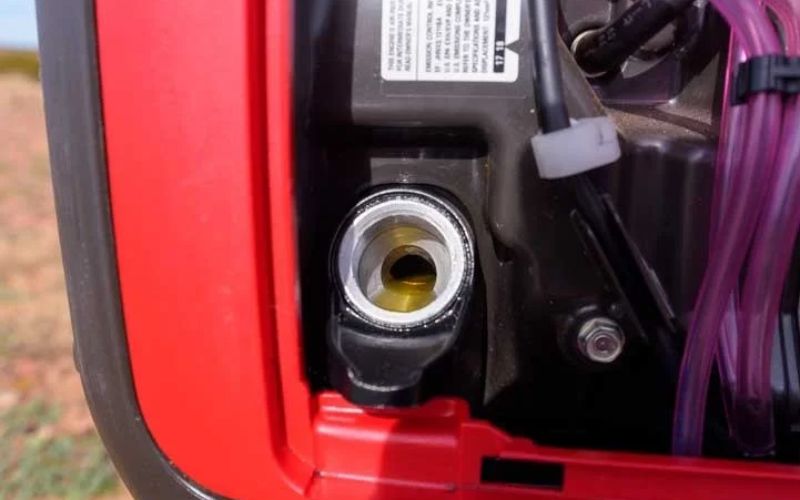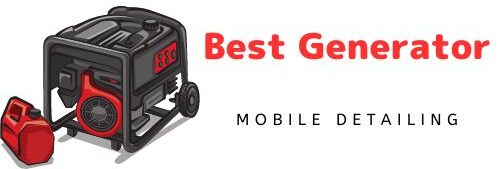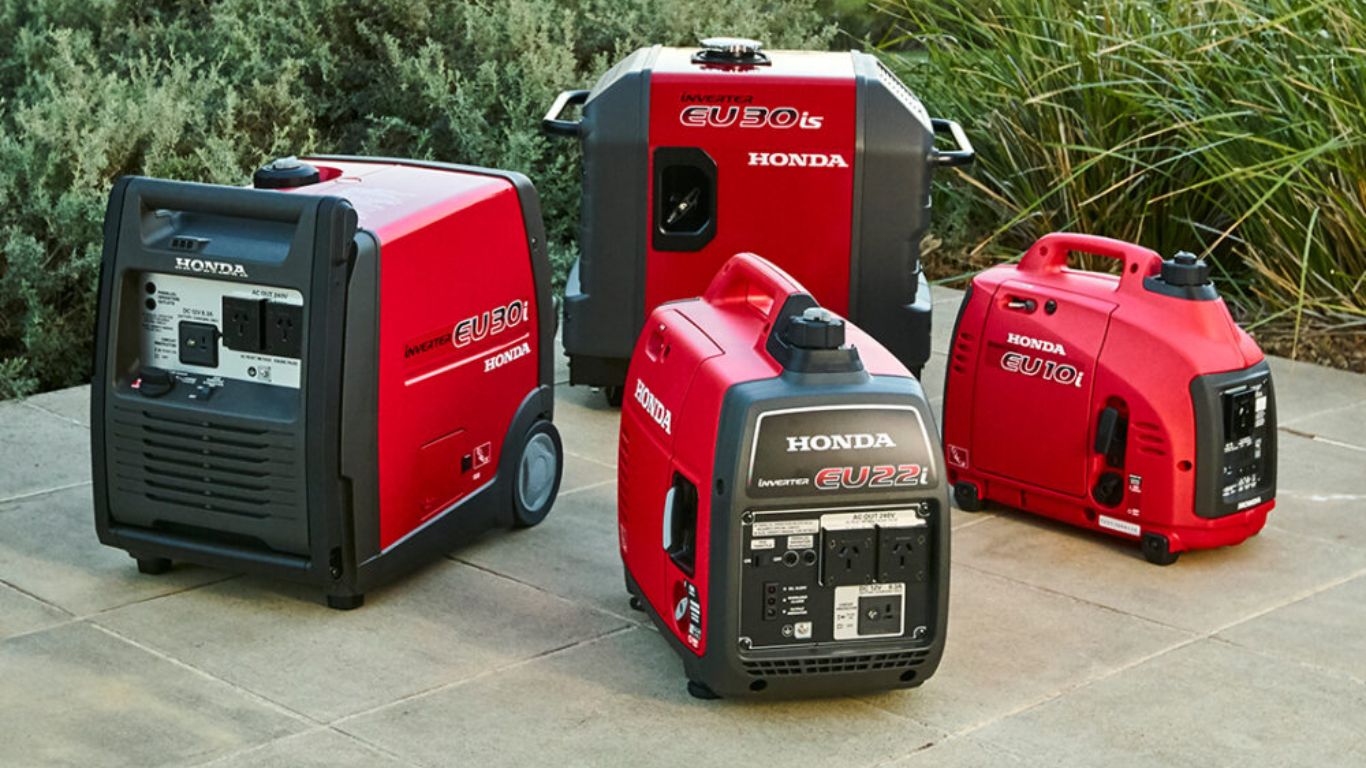Have you ever noticed the low oil pressure warning light on your generator and wondered What Does Low Oil Pressure Mean? Understanding what low oil pressure means is crucial for your peace of mind and the health of your generator. Low oil pressure can signal issues ranging from insufficient oil levels to serious mechanical problems that could compromise your engine’s performance.
In this guide, Best Generator For Mobile Detailing will walk you through the significance of oil pressure, the common causes behind low readings, and the immediate actions you should take if the warning light appears. By the end, you’ll be better prepared to address oil pressure challenges and keep your generator running smoothly. Let’s dive in.
Understanding Oil Pressure in Generators
Before we get into what low oil pressure means, it’s important to understand the concept of oil pressure in your generator.
What is Oil Pressure?
Oil pressure refers to the force at which engine oil circulates through your generator’s internal components. Just like blood pressure keeps our bodies functioning, oil pressure ensures your generator’s engine parts stay lubricated and can move smoothly without excessive friction. This lubrication is essential to prevent metal-on-metal contact, which could cause severe damage or even engine failure.
Why is Oil Pressure Important?
Maintaining proper oil pressure is key to your generator’s health and performance. High oil pressure means the engine is getting the lubrication it needs, while low oil pressure indicates a potential problem. If oil pressure stays low, it can lead to overheating, increased friction, and serious engine wear, which could result in costly repairs or even total engine failure. Regular maintenance and oil checks are essential to avoid these risks and keep your generator running efficiently.
Recognizing the Failure Signs
When it comes to recognizing the warning signs of low oil pressure in your generator, the most obvious one is that dreaded oil pressure light. Have you ever felt that sinking feeling when it suddenly comes on during operation? Here are key indicators to watch out for:
- Oil Pressure Warning Light: The low oil pressure light on your generator is a clear signal that something’s wrong and needs your immediate attention.
- Unusual Engine Noises: If you hear strange rattling or knocking sounds coming from your generator that weren’t there before, this could be a sign of low oil pressure.

These signs aren’t just coincidences—they’re warnings that your generator’s oil may not be circulating properly, which could lead to serious engine damage. Recognizing these early indicators is essential to maintaining your generator’s health. Ignoring them could result in costly repairs or engine failure, so it’s critical to investigate as soon as you notice anything unusual.
What Causes Low Oil Pressure in a Generator?
Understanding the causes of low oil pressure in a generator is essential for preventing engine damage. Low oil pressure can result from various issues that disrupt the flow of oil, affecting lubrication and increasing the risk of wear and tear. By being aware of these potential causes, you can take timely action to protect your generator and avoid expensive repairs.
Insufficient Oil Level
Ever checked your generator’s oil and found it was lower than expected? Low oil levels are one of the most common causes of low oil pressure. Without enough oil in the engine, the pressure needed to lubricate moving parts can’t build up, leading to increased friction and eventual engine wear. Regularly checking and topping off the oil should be a routine part of generator maintenance to avoid these risks.

Incorrect Oil Viscosity
Using the wrong oil viscosity for your generator can have a significant impact on oil pressure. Every generator engine is designed to work with a specific type of oil that flows correctly under operating conditions. For example, using oil that’s too thick in cold weather can cause sluggish circulation, while oil that’s too thin in hot conditions may not provide adequate protection. Always refer to your generator’s manual to ensure you’re using the right oil for the environment and operating conditions.
Engine Wear and Tear
As generators age, parts naturally wear down, which can affect oil pressure. Older engines may develop leaks in seals and bearings, causing pressure to drop. Regular maintenance, including oil changes and part inspections, can help minimize wear and tear, extending the life of your generator.
Defective Oil Pressure Gauge
If the oil pressure gauge on your generator isn’t functioning properly, it can give you false readings, making it seem like you have low oil pressure when you actually don’t. Regularly checking the accuracy of the oil pressure gauge should be part of your diagnostic routine to avoid unnecessary concern or, worse, overlooking an actual problem.
Clogged Oil Filter
A clogged oil filter can restrict oil flow, which in turn can lower oil pressure. If the filter becomes obstructed, it’s harder for oil to reach critical parts of the engine. Regularly replacing the oil filter according to the manufacturer’s recommendations will help keep oil pressure stable and ensure the engine runs smoothly.
Oil Pump Failure
The oil pump is crucial for maintaining proper oil pressure in your generator. If the pump starts to fail, it will cause oil pressure to drop dramatically, which can lead to severe engine damage. Keep an eye on any unusual noises, such as whining, or fluctuating pressure readings, as these could be early signs of oil pump failure. Detecting problems early can save your generator from costly repairs or even total engine failure.
What Should I Do If I Experience Low Oil Pressure in My Generator?
Experiencing low oil pressure can be stressful, but knowing how to respond is vital for protecting your generator. Here’s what you should do when faced with this issue.
Immediate Steps to Take
If the low oil pressure warning light appears on your generator, take a deep breath and remain calm. The first step is to check your oil levels immediately. Turn off the generator, let it cool down, and then inspect the oil level using the dipstick. If the oil level is low, top it off with the appropriate oil as recommended in your generator’s manual. Sometimes, this simple action can restore oil pressure.
Next, consult the generator’s manual to understand what the warning light specifically indicates. Additionally, it’s a good idea to conduct a visual inspection for any oil leaks or signs of oil splatter around the engine. If the warning light remains on after these checks, it’s essential to seek professional help for a more thorough diagnostic.

When to Seek Professional Help
There are situations where professional assistance is not just recommended but absolutely necessary. If the low oil pressure warning stays on after topping off the oil, or if you hear unusual noises like knocking or grinding from the engine, these are clear signs that your generator needs immediate expert attention. Ignoring these warnings could result in severe engine damage, leading to costly repairs. Always trust your instincts—if something feels off, it’s better to consult a professional sooner rather than later.
Your Ultimate Guide to Generators for Mobile Detailing
At Best Generator for Mobile Detailing, we are your trusted source for everything related to generators in the mobile detailing industry. Our mission is to provide you with reliable and accurate information, ensuring you have the expert guidance needed to choose the perfect generator for your specific needs.
Our dedicated team, led by Senior Home Editor Roy Berendsohn, thoroughly researches each product we recommend to ensure it meets the highest standards of quality and performance. While we may earn through affiliate marketing programs, our reviews and suggestions are entirely unbiased and focused solely on delivering value to our readers. We aim to help you optimize your mobile detailing operations with the best tools and resources available.
Conclusion
Throughout this discussion on low oil pressure and its impact on generators, we’ve explored the key aspects of understanding and managing oil pressure. From recognizing what low oil pressure means to addressing the causes and risks, it’s evident that maintaining proper oil pressure is essential for the longevity of your generator’s engine. Ignoring these warning signs can lead to serious damage, so regular oil checks and timely maintenance are vital to keeping your generator running smoothly.
Frequently Asked Questions (FAQ)
What does low oil pressure mean for my generator?
Low oil pressure in your generator means that oil isn’t circulating effectively through the engine, which could result from low oil levels, a faulty oil pump, or a clogged oil filter. If the warning light appears, it’s important to investigate immediately to avoid potential damage.
Can low oil pressure damage my generator’s engine?
Yes, low oil pressure can severely damage your generator’s engine by reducing lubrication, which leads to overheating and excessive wear. This could result in costly repairs or even complete engine failure if left unchecked.
How often should I check the oil in my generator?
It’s recommended to check the oil level in your generator before each use, especially if you’re using it regularly for mobile detailing. Also, follow the manufacturer’s guidelines for oil changes, which usually range from every 50 to 100 hours of use depending on the model. Regular oil maintenance can extend the life of your generator and ensure it runs efficiently.
Marion Woods is an accomplished generator technology expert with over 15 years of experience, currently serving as the Chief Technology Officer at GenTech Power Solutions. She holds a Master’s degree from MIT and specializes in enhancing generator efficiency and integrating renewable energy sources. Marion is a respected author and speaker in the engineering community, dedicated to pioneering sustainable power solutions.


3 thoughts on “What Does Low Oil Pressure Mean and How to Deal With It?”